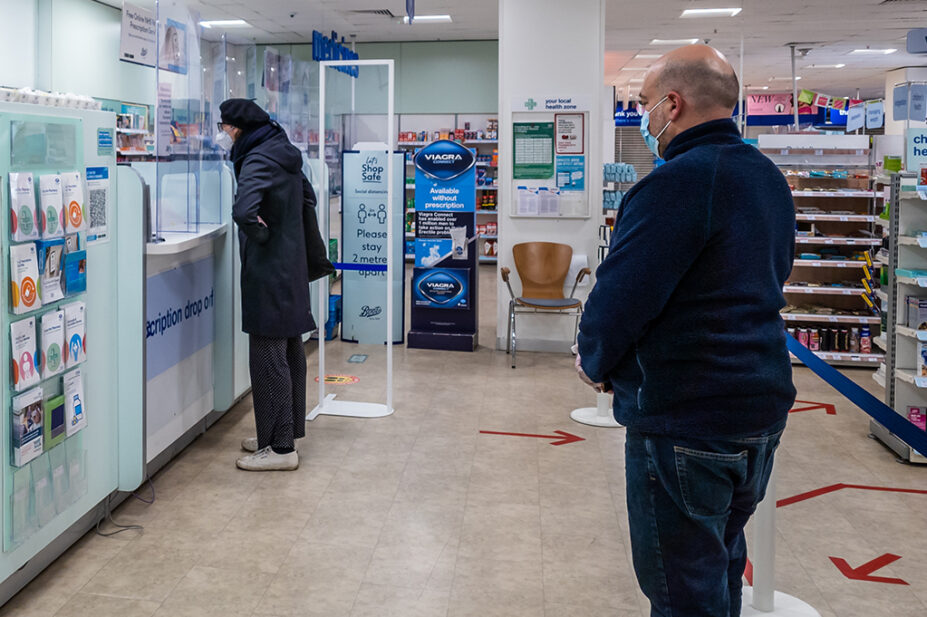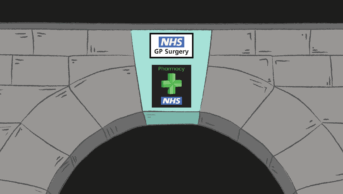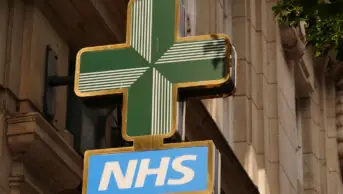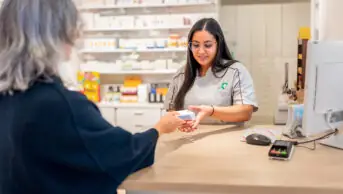
Shutterstock.com
The proportion of patients seeking advice from pharmacists on self-treatable conditions has fallen over the past three years, according to a report from the Proprietary Association of Great Britain (PAGB).
The PAGB’s ‘Self-care census 2025‘, published on 24 July 2025, has revealed that the proportion of UK adults asking a pharmacist for advice as their first option for self-treatable conditions has fallen by 18 percentage points — from 69% in 2022 to 51% in 2025.
Despite these findings, the report also revealed that more than two-thirds of UK adults (67%) agree that pharmacists are a trustworthy source of healthcare information.
The PAGB said the “significant fall” in patients seeking advice from pharmacists could be linked to a decline in confidence in self-care and a lack of awareness of pharmacists’ ability to support people to self-care.
The report also suggested that the decline may also be the result of the temporary change in behaviour during the COVID-19 pandemic, where more people visited their pharmacist owing to accessibility, which reverted afterwards, as well as pharmacy closures in recent years.
“15% of adults say that pharmacies close to them have closed within the [past] year and, of those, almost 6 in 10 people (59%) say it is now harder to access non-prescription healthcare and advice. On average, 34% of those impacted say they now go to their GP instead of their pharmacist,” the report said.
“Reduced access may also be exacerbating health inequalities and hitting individuals from a lower socioeconomic background harder. From the demographic with the lowest annual household income (less than £10,000 a year) that have been impacted by pharmacy closures, 51% of people said they now rely on their GP instead.”
In May 2025, a study published in BMJ Open revealed that there had been a four-times greater decline in pharmacy access in the most deprived areas in England compared with the least deprived areas.
Researchers found that, between 2014 and 2023, there was an almost 12% decrease in the number of community pharmacies in the most deprived areas of England compared with a 3% reduction in the least deprived areas.
The PAGB said its data should “act as impetus for national policymakers to put pharmacy services front and centre when delivering on the government’s commitment to tackle health inequalities as part of its ten-year health plan, as well as its ambition to shift more care from hospital to the community”.
The launch of Pharmacy First is a step towards this shift, it added; however, “only 50% of people are aware of Pharmacy First services”.
Mark Burdon, community pharmacist and adviser to the PAGB, said: “There’s an opportunity wide open here to not only raise the visibility of pharmacy services to improve the public’s understanding of and confidence to self-care, but also to expand the eligibility criteria of the Pharmacy First service to reach more patients.”
Commenting on the report, Claire Anderson, president of the Royal Pharmaceutical Society, said: “Pharmacists are experts in medicines and play a key role in supporting people to care for themselves with the right advice and treatment. It’s vital the public continues to feel confident in seeking their advice.
“This report underlines the importance of maintaining a resilient pharmacy network so patients can continue to access the care they need closer to home.
“We’ve seen welcome progress though initiatives like Pharmacy First, but to fully use the potential of community pharmacies, we need sustainable investment and workforce support.”
In June 2025, pharmacy minister Stephen Kinnock said the take up of Pharmacy First was “not what we would like it to be” and that the government was “looking at options” to boost awareness of the service.


